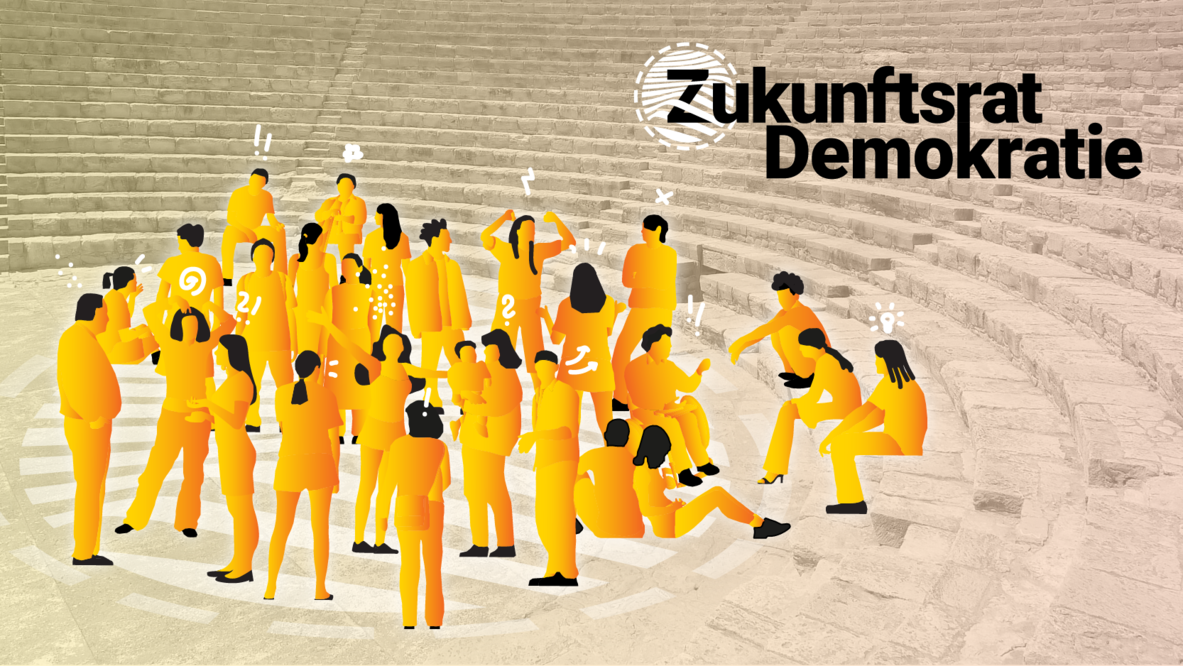Citizens' jury on democracy in Austria

What would the rules, the constitution, the laws in Austria look like if ordinary people could draft and vote on them themselves? The association Respekt.net and the two initiatives IG Demokratie and Mehr Demokratie wanted to find out with a citizens' jury.
On 18 and 19 September 2021, ten randomly selected people from the Alpine Republic discussed the future of democracy there in a so-called "Future Assembly". In this way, the initiators wanted to draw attention to the necessity of various possibilities of effective citizen participation and make the feasibility of sortition procedures visible.
"Involvement of the many"
Tenor of the Citizens' Jury: "A social reflection process involving the many is needed for the burning challenges that cannot be mastered or decided by individuals! According to the members of the Citizens' Jury, the issues of health, the future of care, climate policy and justice in particular need this broad social reflection process: "Politics - even if it is scolded - should do it anyway - the strictest requirements for emission protection are needed! Industry can do it - and if it has to, it will. And that indirectly boosts our economy again, because the technology that is now being invented pays off as an economic factor," suggests participant Johann Landsmann with regard to a more courageous climate policy.
But also in more contentious issues, the method proved to be viable - what made the Citizens' Jury particularly excellent for all participants, explained participant Edith Lettner: "Completely contrary points of view do not have to lead to division, but can lead to more understanding and to new approaches to solutions, to a further broader path and to lived, lively democracy, in which one feels seen, heard and perceived and gets the feeling that one has a part. The bottom line is: it really should be in the DNA of every country!"
Model for future citizens' juries
The participants of the Citizens' Jury immediately drafted a model of how Citizens' Juries can actually be institutionalised in the legislative process: "We want to and can participate in the political process and in the solutions. First of all, a platform must be created where the population can collect their issues. The most burning issues should be dealt with in independent citizens' jury with experts brought in. The result of these citizens' juries should then culminate in goals and citizens' will, in order to be able to propose viable solutions to problems together with experts."
In Austria, the citizens' assembly format is best known from Vorarlberg. The consultative process in which citizens work on a common understanding of a problem situation and its solutions in a moderated exchange of arguments is particularly suitable for emotionally charged issues that are also accompanied by complex conflicts of values, according to the citizens' assembly initiators.
Exploring a common future
Democracy is about exploring a common future against the background of different interests. Conflicts need to be dealt with constructively. The Citizens' Jury on Democracy is therefore about creating a space for negotiating long-term perspectives on the "how" of such a political process. The creative cooperation of the participants should not only lead to concrete proposals for the future of democracy, but also to questions for further processes after the Citizens' Jury. The aim of the Citizens' Jury is to initiate a sustainable and lasting dialogue.
The participants of the Citizens' Jury, who were randomly selected, received compactly prepared information on the topic of participation and democracy in the run-up to the meeting. This included information on different international electoral law models and participation formats, or on the topic of transparency and parliamentarism. This information was also open to public debate in order to ensure neutral access.
Dynamic facilitation method
The group of ten participants was moderated using the "Dynamic Facilitation" method. "Both the streamlined format and the particular facilitation method allow for a process that reveals profundities," the organisers of the Citizens' Jury wrote on their website. At the end of the weekend, the results were summarised and prepared for a first publication.
On 19 September, the results of the Citizens' Jury were presented and discussed at a "Citizens' Café" with the participation of the public, the media and representatives of political institutions. The aim was to hold a public consultation on the process and the direct results in a timely manner.
Further proceedings
After the analysis of the process and the results, two basic documents for further work are to emerge from the discussions within the participatory campaign and the citizens' jury. By handing over a policy paper to politicians, the Citizens' Jury initiators wanted to formulate an invitation for the institutionalised continuation of participatory processes. The publication of a citizens' manifesto was also intended to open up further perspectives for more democracy from civil society - also beyond existing institutions.
Read more: Zukunftsrat Demokratie